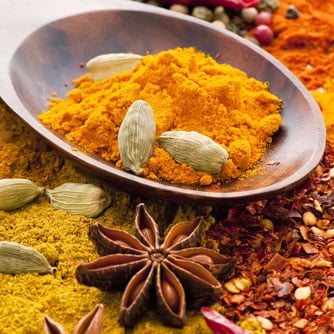Obesity and Type II Diabetes Mellitus are conditions that often associate with elevated levels of leptin, a hormone that regulates appetite, and frequently accompanied by liver disease. A specific type of fatty liver disease, known as non-alcoholic steatohepatitis (NASH), affecting 4% of the US adult population, can cause liver fibrosis and possibly cirrhosis, liver cancer and death. Anping Chen, from Saint Louis University (Missouri, USA), and colleagues assessed the effect of curcumin on the role of high levels of leptin in causing liver fibrosis. The team found that high levels of leptin activate hepatic stellate cells, which are the cells that cause overproduction of the collagen protein, a major feature of liver fibrosis. The researchers found that among other activities, curcumin eliminated the effects of leptin on activating hepatic stellate cells, which short-circuited the development of liver damage. Explaining that: “Curcumin eliminated stimulatory effects of leptin on [hepatic stellate cell] activation … inducing expression of genes relevant to lipid accumulation and elevating the level of intracellular lipids,” the team concludes that: “These results provide novel insights into mechanisms of curcumin in inhibiting leptin-induced [hepatic stellate cell] activation.”
Curry Spice May Prevent Liver Damage
Youcai Tang, Anping Chen. “Curcumin Protects Hepatic Stellate Cells against Leptin-Induced Activation in Vitro by Accumulating Intracellular Lipids.” Endocrinology, September 2010; 151: 4168 - 4177.
RELATED ARTICLES




